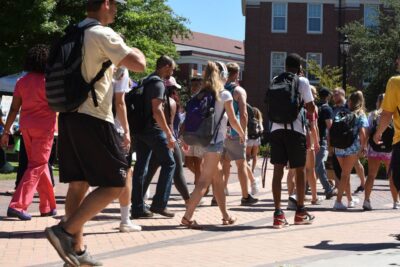Promoting faculty wellness and reducing burnout through information access and leadership education
Kimberly Grainger
Associate Vice Provost for Academic Personnel and Policy, North Carolina State University
The views and opinions expressed are those of the author and do not necessarily represent the views or opinions of EAB.
As associate vice provost for academic personnel and policy at North Carolina State University, one of my top priorities is the faculty. Within the office of the executive vice chancellor and provost, is the office for faculty excellence. Our office works directly with faculty on all aspects of faculty affairs and development. After the pandemic, both faculty and students struggled with mental health and wellness-related issues. The fellowship was an opportunity to study and address some of these issues.
During the semester of the fellowship, using the EAB Faculty and Staff Mental Health and Wellness Resources Website Audit, we were able to analyze our online information offerings for faculty and staff related to wellness. After the audit, we determined that faculty needed their own wellness-related webpage that incorporated faculty-specific wellness resources. A dedicated webpage was developed within the office for faculty excellence. This page was utilized to provide best practices for university wellness days and links to mental health resources.
To educate academic leadership, we hosted a workshop on faculty burnout for academic associate deans and other academic campus partners. An EAB expert, Dr. Jennifer Latino, provided the workshop and tools for colleges and departments to use when addressing burnout. It was beneficial that Dr. Latino chose examples of similarly situated R1 institutions to provide context within the workshop.
To continue providing information about faculty wellness to university leadership, we included an institution-specific question about faculty wellness to be included in our 2024 administration of the COACHE faculty satisfaction survey.
-
Interested in the Rising Higher Education Leaders Fellowship?
Learn more about the program and future cohorts.
The final aspect of the fellowship project was to explore providing faculty the opportunity to address wellness issues within the reappointment, promotion, and tenure process. During COVID, NC State implemented COVID impact statements, which consisted of an additional page of narrative that faculty could include in their dossier for reappointment, promotion, and tenure. We recognized the value of providing that space for faculty and would like to continue it.
Ideally, as the COVID impact statements sunset, they will be converted to impact statements where faculty can discuss occurrences that have impacted their wellness and career performance. We are in the early stages of this discussion and expect to proceed through the shared governance process by engaging with the faculty senate, department heads, and associate deans to solicit feedback on this proposed change.
Overall, the fellowship and preparation for the capstone project were extremely meaningful. It was also productive to be paired with another fellow, Dr. Cherilyn Lacy, assistant dean of faculty at Hartwick College, as my capstone partner. Thank you to EAB and my partner for an outstanding experience.
More Blogs

A winning platform for higher education in a high-scrutiny era

Five trends that give community colleges a surprising edge in 2026
